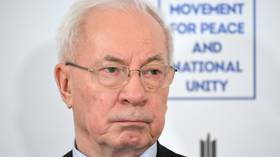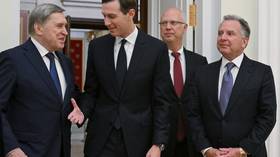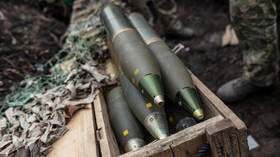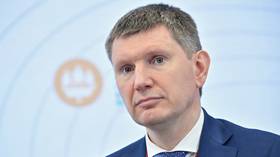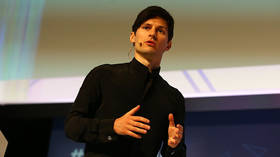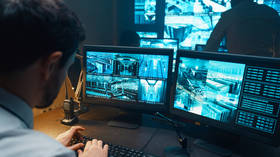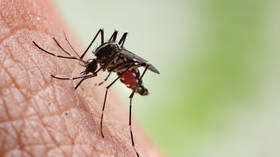‘There is no sincere will for peace in Ukraine from the main actors in the West’
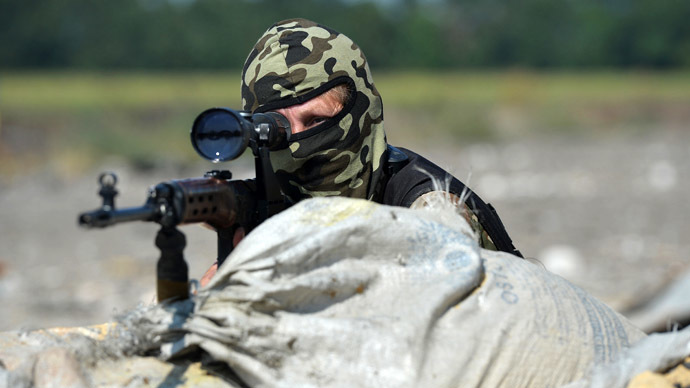
Russia has been put into an impossible situation, meaning they are responsible not only for what has been done in Lugansk and Donetsk, but also for what has been done on the side of Kiev, political analyst Alexander Pavic told RT.
RT:Apparently, the truce in Ukraine is not enough for the EU to hold back on yet more sanctions. This somewhat contradicts what European leaders were saying earlier, doesn't it?
Alexander Pavic: The ceasefire was, first of all, the reflection of the very bad military situation for the regime in Kiev. They needed a breather to redirect, recompose their troops, to settle their fronts because they were losing badly, they were in danger of losing Mariupol. Unfortunately, the desire for peace was not honest, was not sincere. On the other hand, the chance to present peace should have been taken. We have had for the past few months one side, Russia, which has been bending over backwards to try to de-escalate the situation, we had several European countries who are trying as best as they could to also de-escalate [the situation] and raise the voice against sanctions. I’m talking about countries like Slovakia, even Italy, not official Germany so much but pretty important political forces inside Germany as well. Unfortunately, the voice from Washington and London was stronger, and as a result no ceasefire is going to be prominent until we have a change of direction, change of policy in the White House, in London and until Berlin decides it is working in the favor of Europe and not in favor of the EU, NATO and Anglo-American alliance.
Marcus Papadopoulos, editor of UK political magazine Politics First, on the Ukrainian crisis: “The war in Eastern Ukraine was an American war and it was instigated by the American government for two reasons. Firstly, to bring Ukraine into the West’s sphere of influence so that it eventually joins the EU and NATO, and thereby, to encircle Russia completely on its western borders in Europe. The second reason was to justify the permanent NATO presence in Eastern Europe.”
RT:Moscow's prepared counter-measures to the latest sanctions, saying it may ban European airlines from using Russia's airspace for transit flights, and restrict car imports. How painful would that be?
AP: It is going to be painful; there is no question about this. The counter measures imposed by Russia regarding agriculture are already painful. But the worst thing about that is it represents an escalation of the crisis and it is something that is strongly unnecessary. Why push the EU into recession? And this is what’s happening. It is going to be painful in the short-term for Russia, but Russia has shown that it can find alternative suppliers for what they are getting right now from the EU. But what are the EU countries going to do? Who is going to compensate them for losses incurred? It also worsens the general atmosphere instead of trying to find a common language. Again, we are having a language of sanctions, conditions, ultimatums, and the general atmosphere regarding this Ukrainian problem as a whole is deteriorating. That’s the worst thing about this.

RT:Some European countries are against sanctions, yet they're still being imposed. There must have been some serious lobbying going on behind the scenes, mustn't there?
AP: The most powerful EU countries, which are Germany and France, after that probably the UK and Italy, if they were asked by themselves whether they want to impose sanctions on Russia they would say “no”. Unfortunately, they are under the disproportional influence of Washington in the first place and they just can’t withstand the pressure. What is going on behind the scenes, we cannot say for certain, but obviously pressure has been waged from Washington on Berlin, Paris, Rome, and as a result we are having sanctions instead of dialogue.
Marcus Papadopoulos, editor of a UK political magazine Politics First, on sanctions: ”The Americans are acutely aware that Russia of today is not Russia of the 1990s. Russia today is strong politically, economically and militarily. The American government feels very threatened by that. So that is why the US is pushing ahead with these sanctions attempting to cripple a resurgent Russia on the international stage.”
RT:Brussels says the sanctions aren't fixed in stone and could be lifted. When?
AP: This is the whole thing. They are saying “if the ceasefire holds” but this assumes that Russia controls everything, it assumes that Russia controls not only the self-defense forces in Lugansk and Donetsk but that it also controls the Kiev forces, and that is absolutely out of the question. So in fact, Russia has been put into an impossible situation, meaning they are responsible not only for what has been done in Lugansk and Donetsk, it has been held responsible for what has been done on the side of Kiev, which has totally taking an anti-Russian course. Obviously Russia has no control over Mr. Poroshenko or the government in Kiev, so it’s really a lose-lose situation. Russia cannot control what Mr. Poroshenko does, it cannot control what the Ukrainian army does. What does this tell us? It tells us that there is really no sincere will for peace from the main actors in the West because otherwise, they will be the ones to press Kiev to hold to the truce, to respect the truce. Instead they are playing this game saying Russia is responsible for everything that is happening in Ukraine, and everyone knows that is not true.
The statements, views and opinions expressed in this column are solely those of the author and do not necessarily represent those of RT.
The statements, views and opinions expressed in this column are solely those of the author and do not necessarily represent those of RT.


